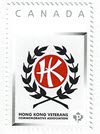Ralph Maclean profile from April 2019
“It was right over my bed. Picture me with a roof at my feet.
With your friends at your feet. There was a guard on duty and he had
apparently stepped out the door, and the whole shed came down around
him.”
It was New Years’ Eve 1944, and the barracks containing 180 Canadian
Prisoners of War in Japan collapsed under a wet snowfall, with himself
spared by a hole in the roof.
POWs desperately tried to dig out their friends from under the
rubble, but were ordered by Japanese guards to form up and be counted,
lest they attempt an escape in the chaos.
Canadians were left trapped, crying, moaning and entombed.
8 Canadians died that night.
Their frozen bodies were too big for the coffins provided, and their
corpses were broken at the elbows and knees.
Of all things that might kill a Canadian in the Far East during war,
death by snow seemed a cruel irony.
//
Ralph Maclean was from Grindstone Island, Magdalen Islands in the
Gulf of Saint Lawrence.
He recalled his trip to Asia, with his troop ship stopped in Pearl
Harbor in November 1941 to be greeted by ‘Hula’ dancers and a near
mutiny over poor rations of poorly cooked tripe and mutton.
Upon capture on Christmas Day 1941, he was roped together with his
platoon mates with barbed wire, and placed in the middle of the Jockey
Club Stadium.
He had signed up with his best friend Deighton Aitken, who was
separated from him during a diphtheria epidemic.
This disease forms a mucus membrane in your throat suffocating you
and, if this is survived, releases toxins into the bloodstream. Ralph
returned to POW Camp in HK to find Deighton had died.
His platoon Sgt. Bill Pope was from my hometown of Cookshire and my
Grandfather’s best friend from childhood and college.
Bill’s Grandfather was a Senator and his Great-Grandfather was a MP
and the first Minister of Agriculture and Railways.
“He was just perfect. He was a fine man,” recalled Ralph.
Bill died while a POW in Hong Kong.
In Hong Kong, he carried buckets of dirt by hand to move hills to
expand Kai Tak Airport until he was sent to Japan on a ‘draft’ to the
Japanese homeland to work in factories, mines and shipyards.
Locked in the hold of a ‘Hell Ship’, Ralph and other Canadians were
locked in the dark cargo holds far below the waterline, with only
buckets of rice and others to use as bathrooms in two 7 day stretches.
I had not previously published his story last year as I was hoping to
interview him again for a few follow-up questions.
However, Ralph passed away this past March, days before Covid
lockdowns commenced, and before we had a chance to speak again.
May he rest in peace.
Hormidas Fredette from a Remembrance Day
"I used to close my eyes and chomp, chomp, chomp (gestures eating) to
eat the cup of rice so I couldn't see the maggots and bugs in it," he
chuckled about his Prisoner Camp rations.
Meet Hormidas Fredette.
Hormidas is 103 years old.
He is the last remaining Eastern Townships veteran of the Battle of
Hong Kong.
He is from Richmond Quebec, lived in Windsor Quebec and now lives in
New Minas, Nova Scotia.
It is incredible to think he was born in 1917, over a year before the
end of World War 1, and during the Russian Revolution.
"I hope I'll still be around!," he exclaimed when I told him I was
coming to see him.
Pictured, Hormidas is showing me his prized rosary beads, that he
carved from fruit pits and wired together from scrap metal in the
factories he was forced to work in.
Originally from Richmond Quebec, he fought with The Royal Rifles of
Canada in Hong Kong and was a Prisoner of War there and in Japan.
He only met my Grandfather C.Q.M.S. Colin A. Standish, another Royal
Rifle, once: they shared a beer together in Quebec City.
On leave from Valcartier, Hormidas, a Private, spotted my
Grandfather, a NCO, near the Citadelle in Old Quebec.
Hormidas called him over and they drank a beer together in a parking
lot and caught up on Townships life and went their separate ways.
It's funny to think of what people might remember of you someday...
Hormidas fought in the Battle, was pressed into hard labour by the
Japanese and moved hills, bucket by bucket of earth, to construct Kai
Tak Airport in Hong Kong.
In Japan, he had to paint the sides of ships in drydock, where an
earthquake once knocked his scaffolding off the side of the ship leaving
him hanging there until rescued by other workers.
Hormidas returned home, married his sweetheart, and retired to the
Annapolis Valley with his two sons.
I was reluctant to contact Hormidas initially, as there is a moving
video of him (I encourage you to watch it) rejecting the Japanese
apology in 2011 and breaking down on screen.
However, he was a warm and gentle man, who welcomed me into his home
and was eager to share his war experiences without reservation.
I returned the favour from many years ago and brought him a beer.

 Jim Trick
Jim Trick Cory Turner, (daughter of Richard Johnson, Winnipeg
Grenadiers)
Cory Turner, (daughter of Richard Johnson, Winnipeg
Grenadiers) J
P Bear
J
P Bear Lori Atkinson Smith
Lori Atkinson Smith
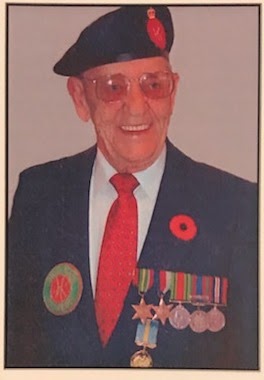
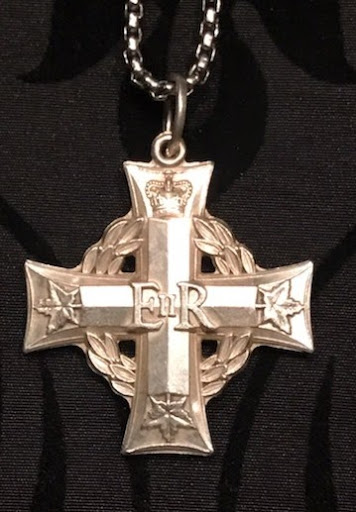
 Colin Standish
Colin Standish 
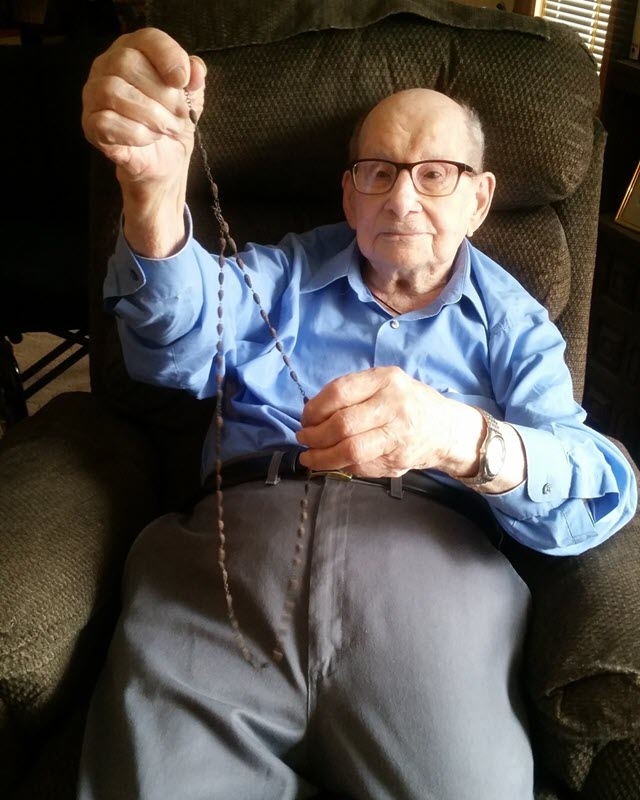
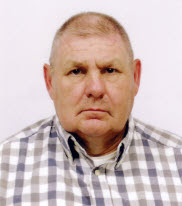 Gene Labiuk, Niagara Military Museum
Gene Labiuk, Niagara Military Museum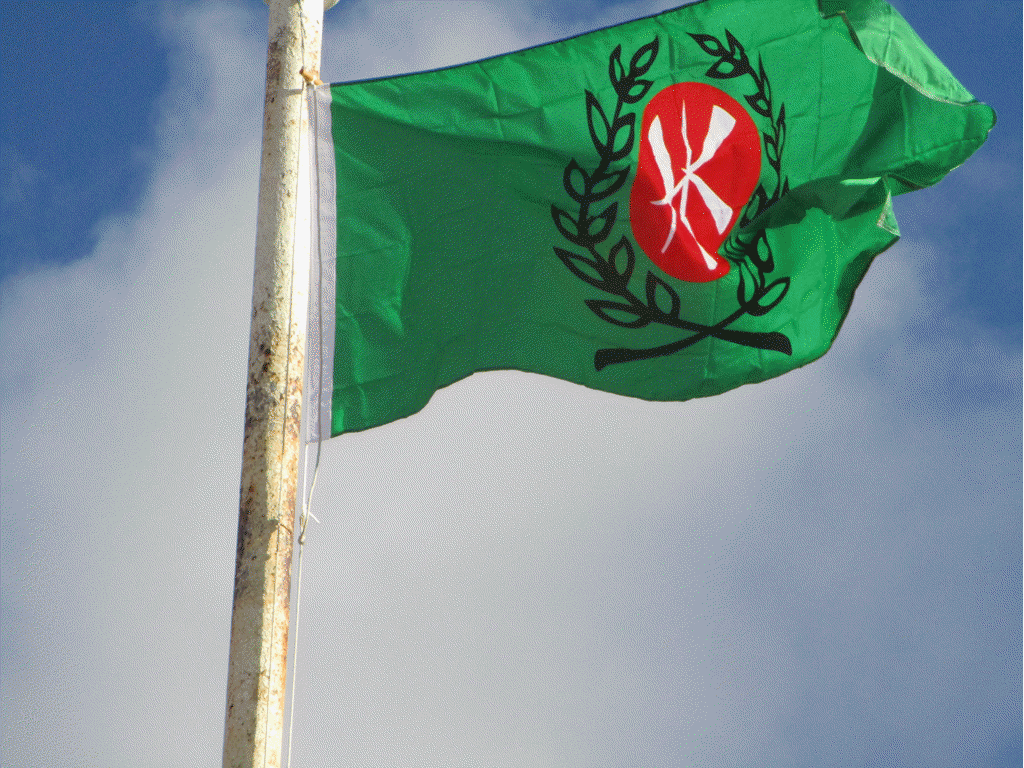
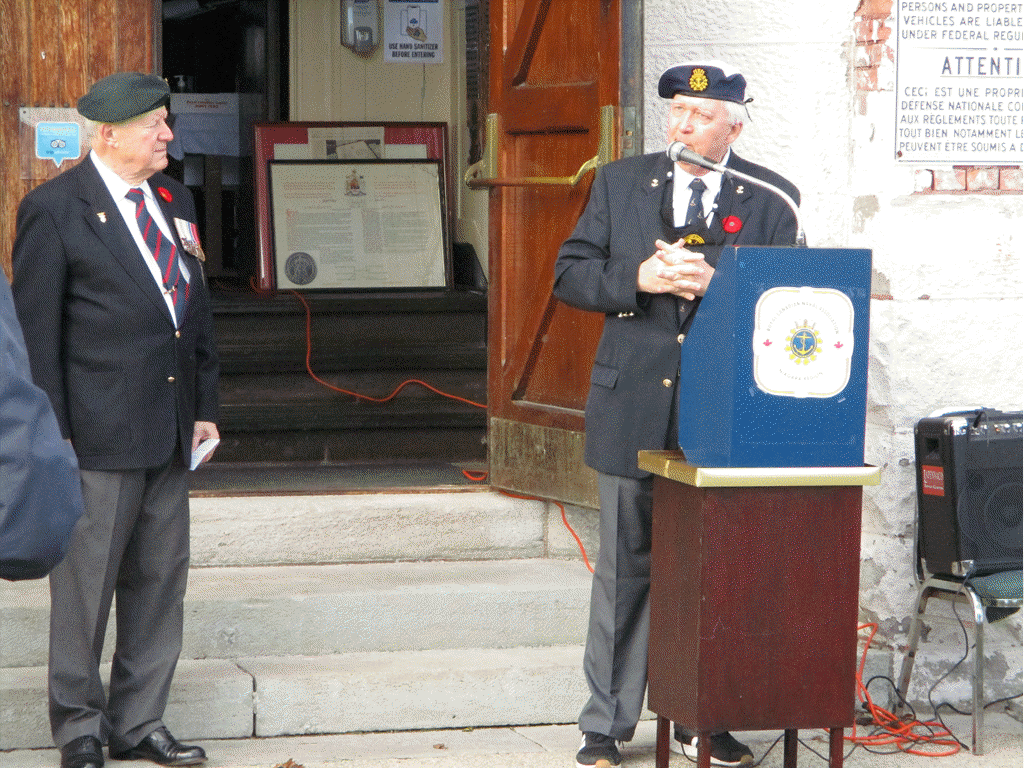
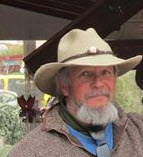 Gerry Tuppert
Gerry Tuppert Carol Hadley
Carol Hadley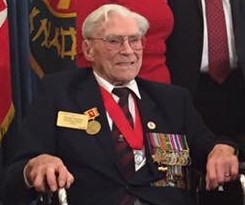
 Shelagh Purcell
Shelagh Purcell Lucette
Mailloux
Lucette
Mailloux 